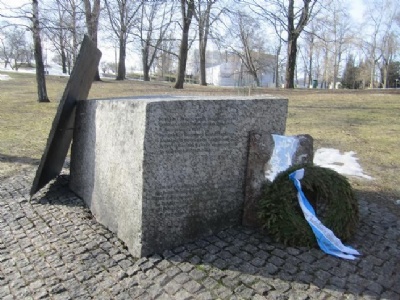Helsinki Harbour
Before the outbreak of the Second World War, there were more than 2,000 Jews within the borders of Finland, of whom about a hundred were refugees fleeing from Germany, Austria and Czechoslovakia. Antisemitic expressions were rare and the Finnish government opposed the spread of Nazi anti-Jewish propaganda. Jewish citizens fought side by side with other citizens in the Finnish Winter War. When Germany attacked the Soviet Union in June 1941, Finland saw an opportunity to recapture the territories they had lost in the Winter War and declared war on the Soviets. In this war, called the continuation war, at least 300 jews fought in finnish uniform.
During a visit in the summer of 1942, SS chief Heinrich Himmler, brought up the Jewish question with the Finnish prime minister Rangell, who, according to his own statement, rudely replied back, ”Wir haben keine Judenfrage” (We have no Jewish question). The Germans understood the importance of not pushing the issue too hard because they depended on Finns’ help in the war against the Soviet Union. But later in the year, the Gestapo asked the Finnish state police (Valtiollinen poliisi, Valpo) to hand over up to fifty Jewish refugees. Valpo’s head, Arno Anthoni, managed to surrender eight Jewish refugees, five Austrians, two letters and one German, to the Gestapo. On 6 November, 1942, they were deported from the port of Helsinki by SS Hohenkorn to Tallinn. However, the extradition did not go unnoticed, it became a politically sensitive issue that resulted in no more surrendings of Jewish refugees. Seven of those extradited were murdered at Auschwitz, the eighth survived.
Current status: Monument (2012).
Location: 60°09'46.95"N 24°57'13.74"E
Get there: Tram.
Follow up in books: Gilbert, Martin: The Holocaust: A History of the Jews of Europe During the Second World War (1987).

This surending was certainly not the only cooperation between Finland and Germany, but it was the only one with racist motives in line with German Jewish policy. During the war, the Finns surrended another seventy Jews, but this was not racially motivated, they were suspecteed of being saboteurs. The Finnish head of state police, Arno Anthoni, asserted firmly that the extradition of the eight Jews was for security reasons and not out of a racist motive. The monument was inaugurated in November 2000 and in connection with this, Finnish prime minister Paavo Lipponen apologised for Finland’s actions.